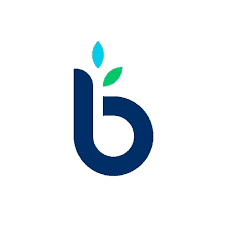
Need help getting funds? Get matched with lenders instantly
Answer some basic questions in less than 3 minutes with no impact to your credit score and compare multiple offers. No commitment, no hassle.
Get Matched💳 Save money on credit card processing with one of our top 5 picks for 2026
Need a commercial loan for your small business but are overwhelmed by the terms and options? Check out the complete guide to commercial loans.
Commercial loans are a common way businesses finance large expenses, but the term can mean different things depending on the lender. This guide explains how commercial loans work and what to consider before using one to fund your business.
Table of Contents
Commercial loans are financing agreements between a business and a lender. The business receives capital and repays it over time under agreed-upon terms.
These loans can be used for operating expenses, inventory, equipment, or expansion. “Commercial loan” is a broad term that refers to business financing in general, not a specific loan product.
Banks are a common source of commercial loans and typically offer lower rates and longer terms. However, strict credit, revenue, and time-in-business requirements can make bank financing difficult for newer businesses or those with weaker credit.
Alternative lenders fill this gap by offering faster applications and more flexible qualification standards. These loans are often easier to access but usually come with higher costs and shorter repayment terms.
Commercial loans come in several common forms. Below is a brief overview of the most widely used options.
Term loans (also known as installment loans) provide a lump sum of capital that’s repaid over a fixed period, usually with monthly payments. Repayment terms can range up to 10 years, with interest paid in addition to the principal.
Short-term loans work similarly to term loans but typically have repayment periods of two years or less. Many use factor rates instead of interest, which sets the total cost upfront. These loans are funded quickly but are usually more expensive and may require daily or weekly payments.
SBA loans are government-backed loans that offer long repayment terms and relatively low interest rates. Popular options include SBA 7(a) and CDC/504 loans.
While they’re more accessible than some bank loans, the application and funding process is slow and often takes a month or longer.
Equipment loans are used specifically to purchase equipment. The equipment itself serves as collateral, which can result in lower rates and longer terms. These loans typically cover a portion of the equipment’s cost rather than the full purchase price.
A commercial line of credit allows businesses to draw funds as needed up to a set limit. Revolving lines replenish as you repay balances, while non-revolving lines do not. This flexibility often comes with higher rates or additional fees.
Some financing products aren’t technically loans but are commonly offered alongside commercial lending options.
You can narrow your financing options quickly by focusing on what lenders actually evaluate. While requirements vary by lender, most look at the same core factors.
Qualifying for a loan doesn’t mean it’s the right fit. Before accepting an offer, focus on whether the loan actually supports your business goals.
Make sure the borrowing amount is enough to cover your needs without forcing you into additional financing. Pay close attention to repayment terms and choose a timeline that aligns with your cash flow — longer terms are typically reserved for established businesses with strong revenue and credit.
Cost matters, but it’s not always straightforward. APRs make it easier to compare traditional loans, while short-term products often use flat fees that require a closer look to understand the true cost. In all cases, prioritize lenders that are upfront about fees and avoid surprises buried in the fine print.
Before taking on debt, compare multiple offers and confirm the loan delivers a clear return on investment. If financing makes sense, reviewing and comparing the best small business loan options can help you find the right lender.
Want to help shape the future of the Merchant Maverick website? Join our testing and survey community!
By providing feedback on how we can improve, you can earn gift cards and get early access to new features.
 Our expert reviewers found BusinessLoans.com to have a quick and easy application process alongside excellent support and guidance for borrowers.
Start A Quick Application
Our expert reviewers found BusinessLoans.com to have a quick and easy application process alongside excellent support and guidance for borrowers.
Start A Quick Application
Help us to improve by providing some feedback on your experience today.
The vendors that appear on this list were chosen by subject matter experts on the basis of product quality, wide usage and availability, and positive reputation.
Merchant Maverick’s ratings are editorial in nature, and are not aggregated from user reviews. Each staff reviewer at Merchant Maverick is a subject matter expert with experience researching, testing, and evaluating small business software and services. The rating of this company or service is based on the author’s expert opinion and analysis of the product, and assessed and seconded by another subject matter expert on staff before publication. Merchant Maverick’s ratings are not influenced by affiliate partnerships.
Our unbiased reviews and content are supported in part by affiliate partnerships, and we adhere to strict guidelines to preserve editorial integrity. The editorial content on this page is not provided by any of the companies mentioned and has not been reviewed, approved or otherwise endorsed by any of these entities. Opinions expressed here are author’s alone.
 Our expert reviewers found BusinessLoans.com to have a quick and easy application process alongside excellent support and guidance for borrowers.
Start A Quick Application
Our expert reviewers found BusinessLoans.com to have a quick and easy application process alongside excellent support and guidance for borrowers.
Start A Quick Application